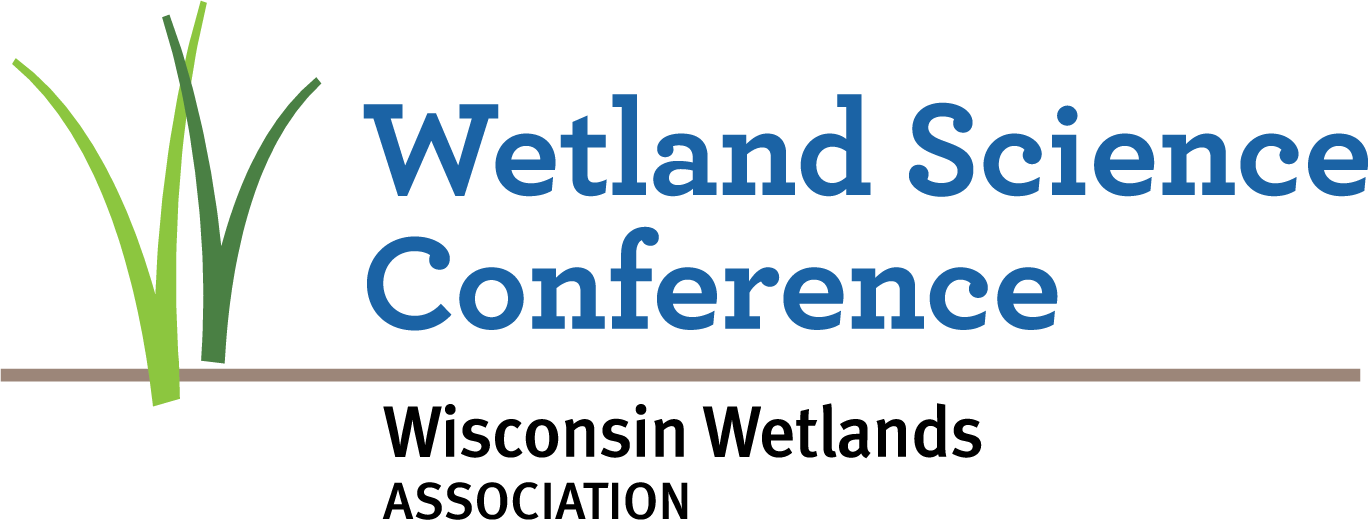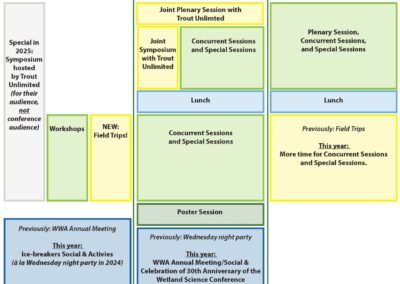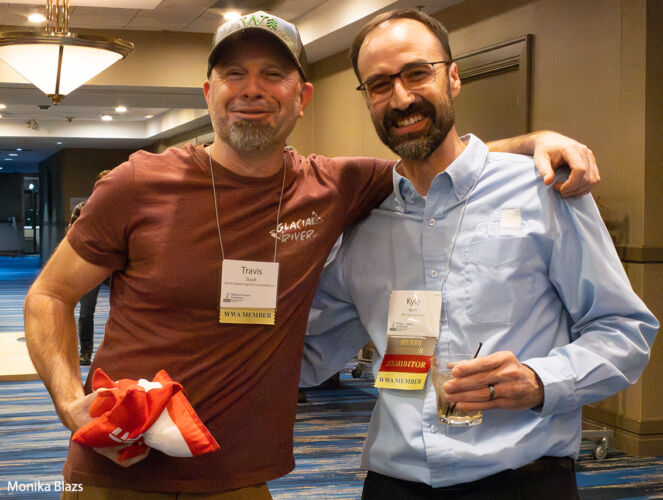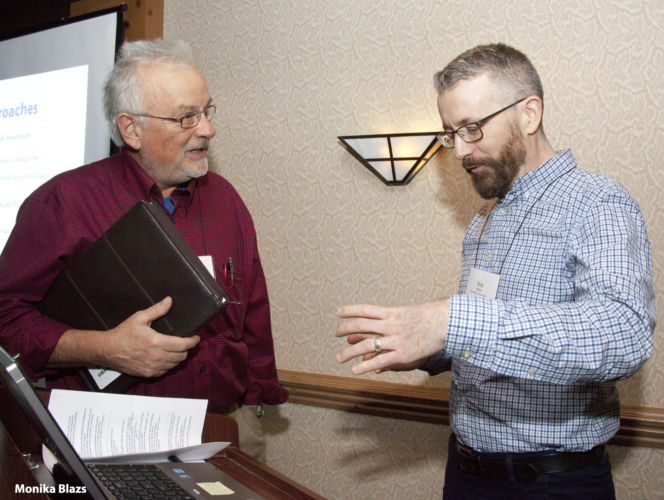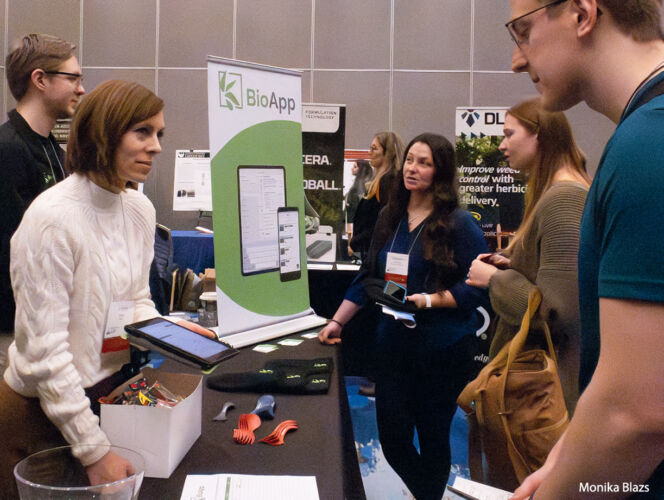
Schedule Key speakers Roundtable Conversations Working Groups Workshops Field Trips Networking
See sub-menu links above under “Program” for specific details about the conference.
Typical Schedule
Tuesday
This year field trips and some workshops will be happening on Tuesday afternoon. The official conference kickoff happens on Tuesday evening with a welcome program and networking social. Sometimes we also have roundtables or other programming during the day.
Wednesday
This full day of wetland science and programs kicks off with a keynote presentation and continues with concurrent sessions, roundtables, workshops, and working groups.
After five, the networking and socializing continue at a poster session (with a cash bar!) and this year a 30th anniversary Wetland Science Conference celebration along with the WWA annual meeting.
Thursday
Thursday’s full-day program kicks off with a plenary session and continues with concurrent sessions, working groups, roundtables, and workshops.
Typcal Content
Key speakers
Hear from two key speakers during the morning plenary sessions and a third during the optional add-on banquet and presentation on Wednesday evening. We feature presenters from right here in Wisconsin as well as wetland and water professionals from around the region and nation.
Oral and Poster Presentations
Hear from wetland and natural resource professionals, students, and enthusiasts in concurrent oral sessions, 5-minute “Lightning Round” presentations, and an afternoon poster session. These presentations are submitted through our Call for Presentations and selected by a review panel.
Roundtable Conversations
Roundtable conversations are informal sessions where people with a shared interest can come together to talk about that topic as part of the Wetland Science Conference. They are a great place to bring your questions or challenges to ask others for suggestions or to come up with solutions to shared challenges. Most importantly, they are great places to talk with people who share your interests and build relationships you can draw on after the conference. Roundtable conversations are developed and facilitated by members of the Wetland Science Conference community—what conversation do you want to happen? Roundtable participants must be registered for the conference, however no advanced sign-up is required to participate in roundtable conversations.
Working Groups
Working groups are your chance to discuss issues raised during the conference or develop action plans on particular topics. Working groups are developed and facilitated by members of the Wetland Science Conference community and can be held on a one-time or standing basis. Examples of standing working groups include the Tribal Wetland Programs Working Group and the Practitioners’ Working Group. Working group participants must be registered for the conference, however no advanced sign-up is required to participate in working groups. Some working groups may be invite-only.
Workshops
Workshops are your chance to learn and apply new skills and methodologies. Workshops are organized and led by members of the Wetland Science Conference community. Pre-registration for workshops is required and most will entail a nominal fee (usually $20-50). Sign up for workshops when you register for the conference. Note that field workshop fees are non-refundable.
Field trips
These trips are your chance to view and enjoy the natural resources we work to protect, manage, and restore at sites located within about 20 minutes of the conference facility. Field trips will only be cancelled in the event of hazardous weather conditions, so snow, ice, and cold should be expected. This is Wisconsin in February! Field trip participants need to dress accordingly. Pre-registration for field trips is required and will include a nominal fee (usually $10). Sign up for field trips when you register for the conference. Space in each field trip is limited and sign up is first-come-first-served, so register early to make sure you get into your desired field trip. Note that field trip fees are non-refundable.
Networking
While the information learned from presentations is an important part of the conference, past attendees tell us that the networking opportunities provided by a gathering like this are the most rewarding benefit of attending. As a result, we work to make sure we include plenty of time for networking through informal and structured opportunities such as those below. You won’t want to miss these great chances to network.
Conference kickoff social
Tuesday evening – included in registration.
Join in for an evening of interactive programming to facilitate networking, learning, and fun. Catch up with your wetland colleagues and friends and meet new wetland enthusiasts at this Wetland Science Conference kickoff event. Details coming soon!
Poster session and social
Wednesday early evening
Visit the collection of poster presentations on wetland science projects and programs while enjoying conversation and networking with your colleagues and peers.
30th Anniversary Conference Celebration and WWA Annual Membership Meeting
Wednesday evening – free and open to the public
Hear highlights of WWA’s work during the past year and elect WWA board members during a brief annual membership meeting.
Other sessions at the conference, including roundtable conversations, working groups, workshops, and field trips, also provide excellent networking opportunities.
